Resources for discovery – how loose parts play can energise environments
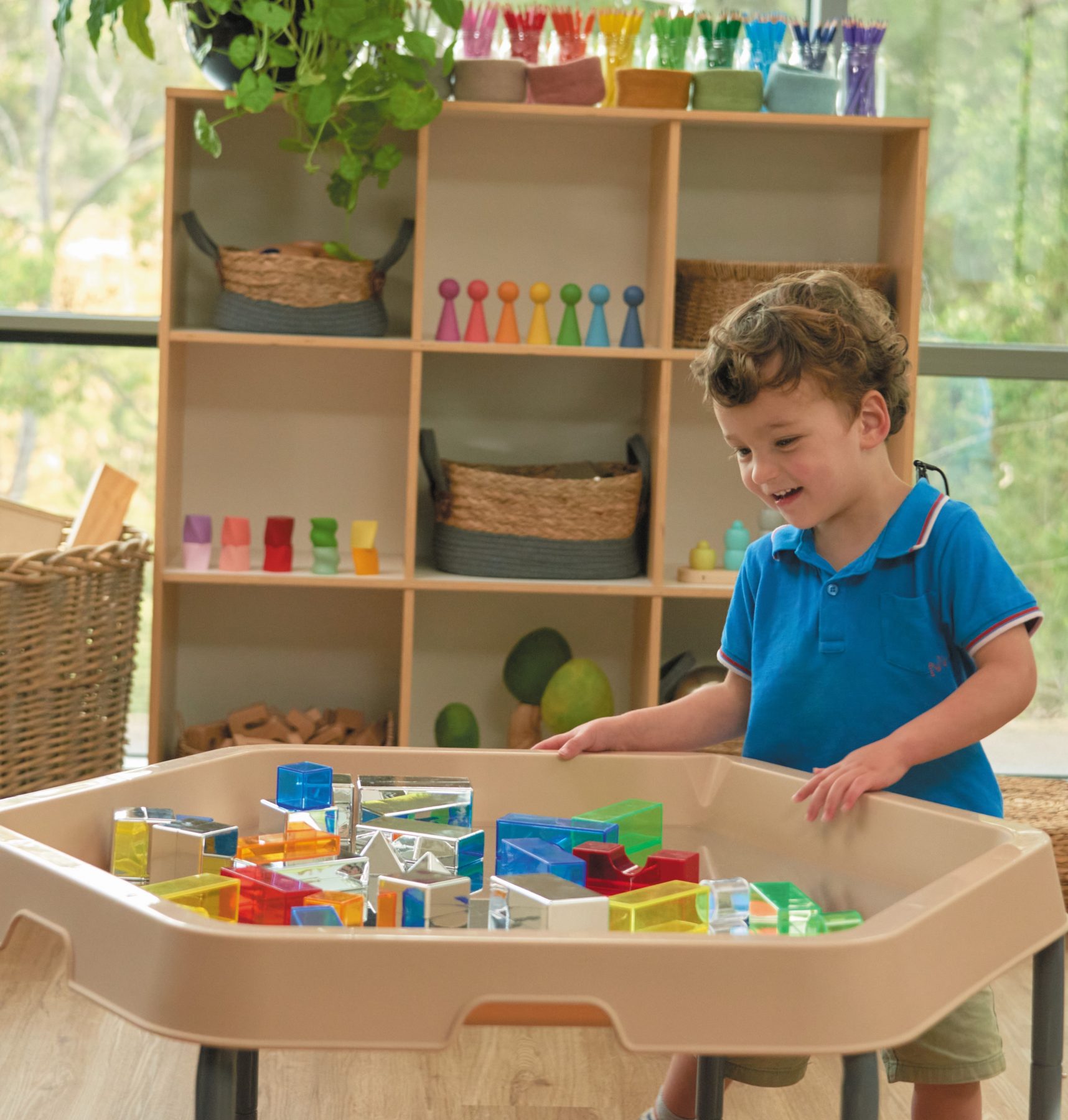
When it comes to creating dynamic early learning environments, there can be a lot of pressure on educators to constantly renew spaces, and set them up in such a way that every day offers children a new adventure.
Thankfully the team at MTA has curated a collection of resources designed to delight children and educators alike, and to support them to engage in exploratory play and creative discovery.
Natural Elements
Resources like the MTA Spaces – Hex Tray and Stand make for strong beginnings for play and open ended exploration. The use of neutral beige to construct the tray lends the surface to a variety of applications, and ties in well with more nature based colour pallets, and to both indoor and outdoor use.
The honeycomb inspired shape of the moulded plastic tray also ties in with natural elements, while the tray itself is constructed from UV stable plastic which is fade resistant. The tray can be used for messy play, to create mini worlds, for group painting experiences, and for exploratory play, either on a table top, on the floor, or in conjunction with a metal stand.
Continuing the natural theme, the Teachables – Wooden Natural Tones Blocks – 40 pieces shown here is the perfect starting off point to introduce open ended natural elements to the classroom environment, or to boost existing resources.
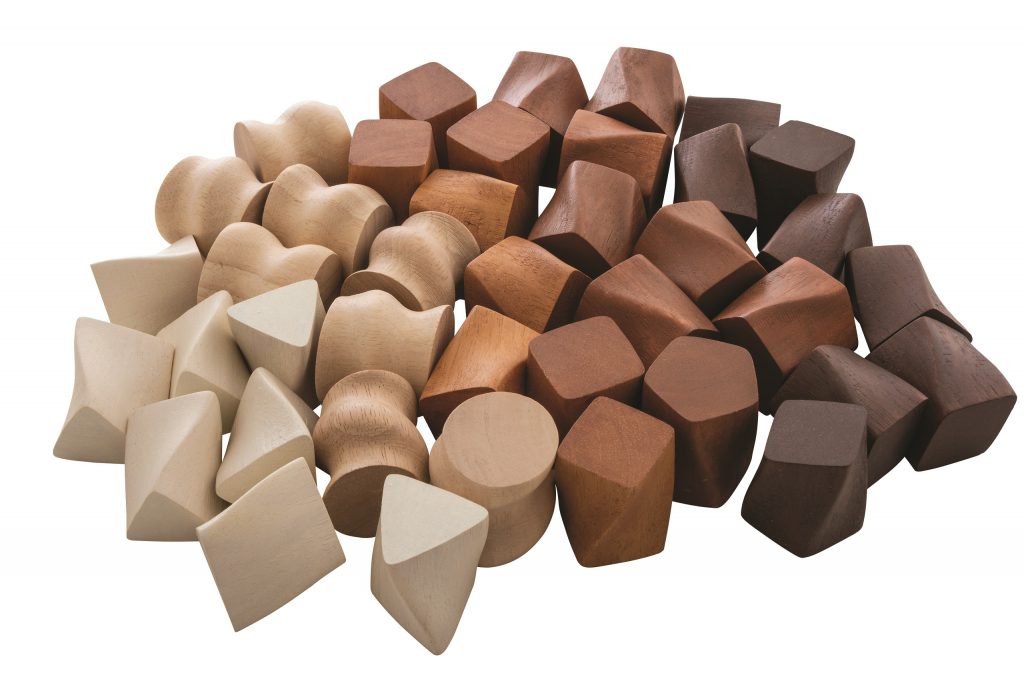
Featuring 40 uniquely shaped wooden toned blocks, made of sustainable rubberwood, this open ended resource can improve hand-eye coordination, learn about colour, develop logical thought and to enhance imaginative play scenarios.
Loose parts such as these are often used in symbolic ways by children throughout their play and learning as they create stories, construct shared small world experiences, explore concepts of sharing, bartering and trade, and design transient art.
Sorting and categorising
Being able to sort and categorise objects of many types is an important early numeracy skill, one which builds the foundation for higher order mathematical concepts such as addition, subtraction, multiplication and division.
As with many aspects of children’s learning, these skills are best learnt when they are incorporated authentically into children’s daily lives. Seeing mathematics in the real world helps children to understand its place and uses.
Resources such as the bamboo teardrop bowls, which come in a set five, serve not only as decorative pieces for the classroom, but also as powerful learning tools and storage spaces.
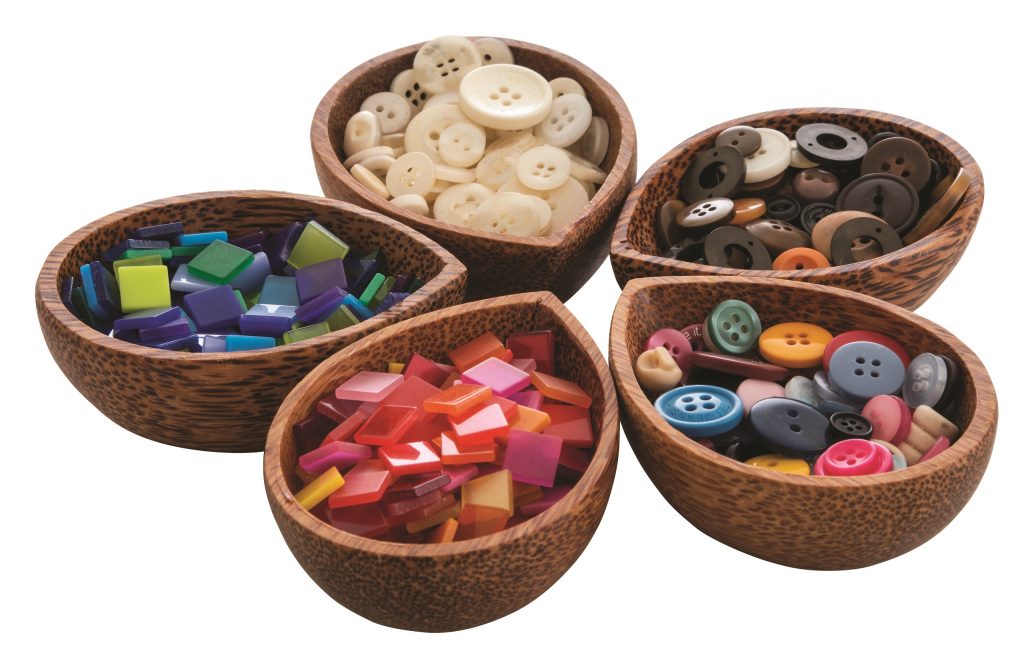
As well as being used for sorting and classification, the bowls can be used to store art materials, present loose parts for consideration by children, or to support children with a transportation schema.
Alongside the bowls, resources such as this Teachables – Wooden Peg Board Kit can draw children in with its calming but engaging colour palette, inviting children to explore important fine motor skills such as hand eye coordination and dexterity while also building mathematical knowledge.
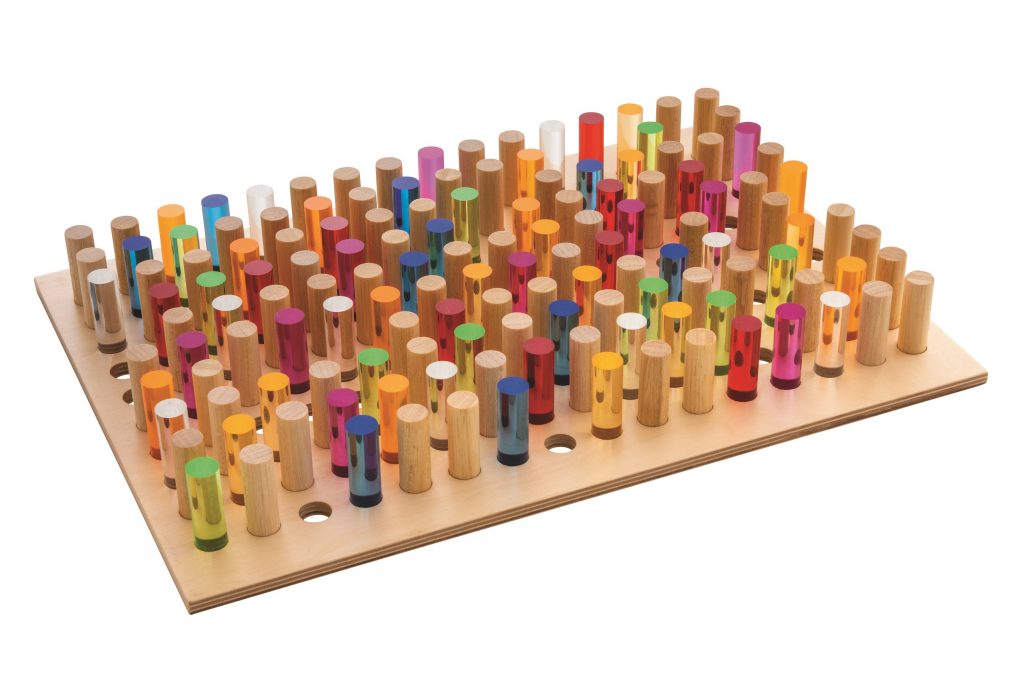
With a total of 211 pieces, the wooden peg board offers infinite opportunities for children to develop fine motor skills, experiment with pattern making, and engage in problem solving.
The peg board can be used as a stand alone resource, or combined with a light box to add a sensory dimension to children’s play and learning. Open ended resources and multi layered resources such as this can be adapted to different skill and knowledge levels, as well as supporting children to become confident and adaptable learners while representing a fantastic investment for educators.
Engaging with resources such as the peg board not only consolidates mathematical knowledge and supports children to engage in open ended play, it also supports children to develop foundational muscle skills which will be used for everyday tasks such as construction, drawing, painting, and writing, as well as self help tasks like dressing with buttons or zippers.
Reflection
Finally, and complementing the resources listed above, is the Masterkidz mirror tray, which is ideal for introducing an element of reflection into children’s work.
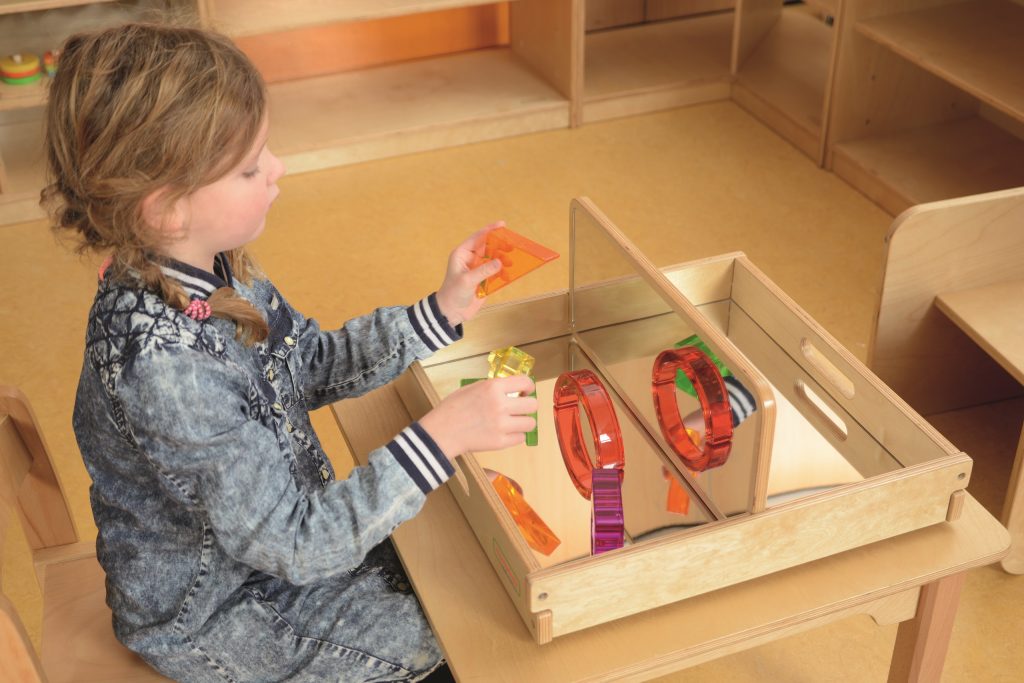
The mirror tray incorporates a central, removable mirror for children to use to develop their understanding of symmetry in a safe way thanks to the scratch resistant acrylic mirror panel and plywood construction.
Children can explore blocks and other mirrored items as well as loose parts on the tray, supporting mathematical and scientific concepts in a fun and safe way. Sensory play, such as play which involves the use of mirrors, can help children to explore each of their senses more fully, and the use of reflection in play and learning can be a tool which engages children on a number of levels.
To access the resources listed above, please contact your local MTA consultant via email, or explore the MTA website, here.
Popular

Policy
Practice
Provider
Quality
Spot checks, CCTV and scrutiny of Working With Children Checks: sector responds to child safety crisis
2025-07-07 07:15:26
by Fiona Alston

Quality
Practice
Provider
Research
Workforce
Honouring the quiet magic of early childhood
2025-07-11 09:15:00
by Fiona Alston

Policy
Practice
Provider
Quality
Workforce
Minister Jess Walsh signals urgent action on safety and oversight in early learning
2025-07-11 08:45:01
by Fiona Alston









